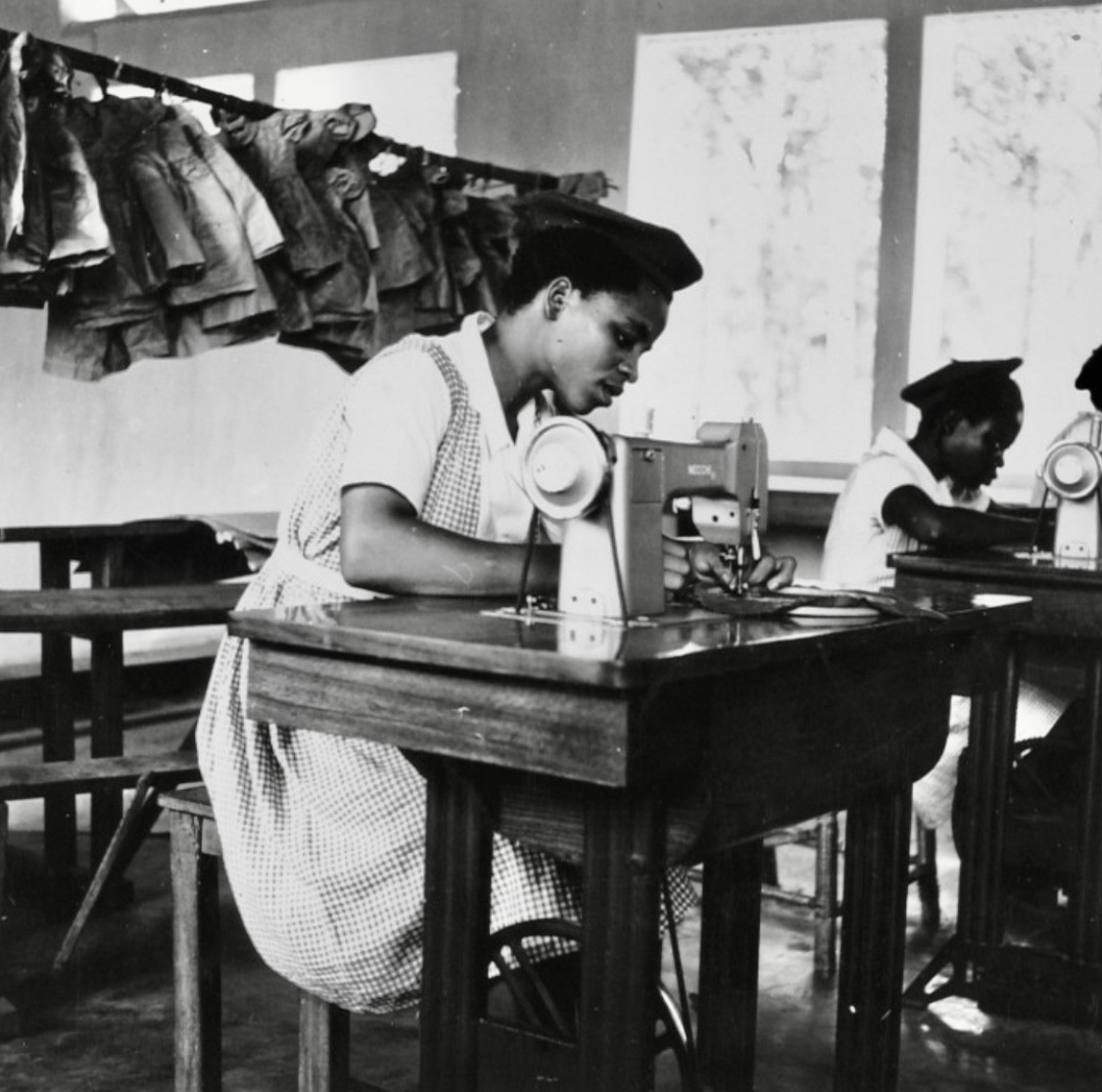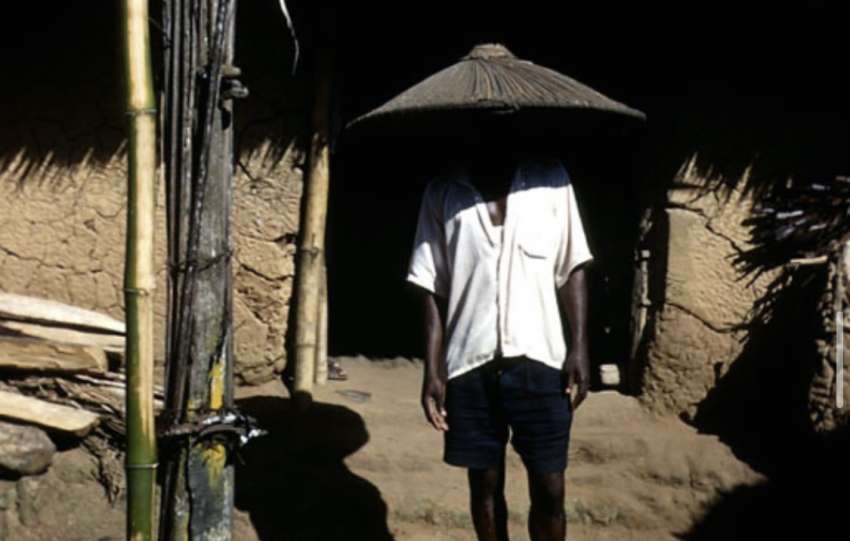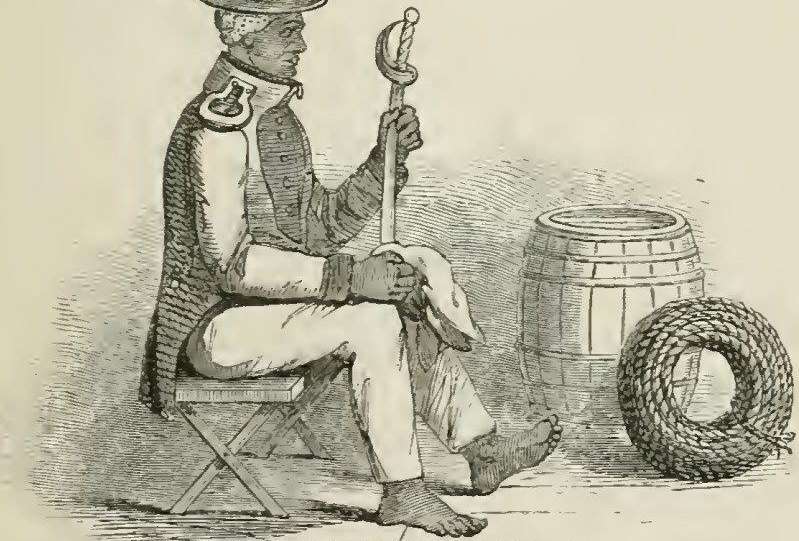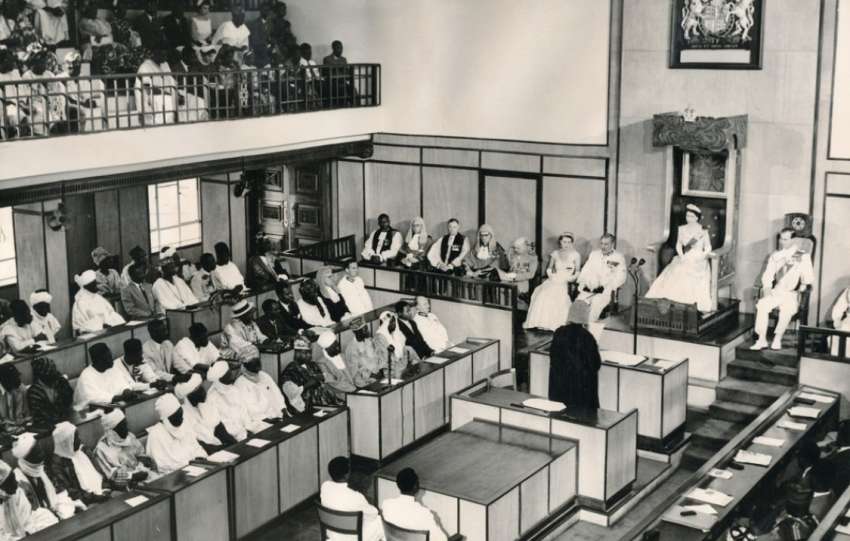
In 1967, a photograph taken by Dr. Gerrit Willem Grootenhuis captured a significant moment in the education of an Igbo student engaged in domestic sewing lessons. This image reflects broader socio-cultural and economic efforts to empower women and young learners within Igbo communities through skill acquisition.
Historical Context of Skill-Based Education
By the mid-20th century, Nigeria experienced a growing emphasis on vocational education as part of the nation’s broader development strategy. Within Igbo society, traditional gender roles placed significant value on skills like sewing, weaving, and other domestic crafts. These skills were essential not only for personal and household use but also as viable means of economic sustenance.
Missionary schools and government initiatives actively promoted practical education for Igbo students. Domestic sewing lessons, as depicted in this 1967 photograph, were integral components of the curriculum. These lessons were particularly important for:
1. Economic Empowerment: Sewing provided students, especially women, with a practical skill that could lead to self-employment or supplementary household income.
2. Preservation of Cultural Heritage: While these lessons introduced modern techniques, they also reinforced traditional styles, patterns, and attire, preserving cultural identity.
3. Self-Reliance: Domestic sewing lessons instilled independence in students, equipping them with skills to create, mend, and modify clothing.
Role of Missionaries and Educators
Dr. G.W. Grootenhuis, who took the photograph, played an active role in documenting the socio-educational progress in Nigeria during his tenure. Missionary involvement in Igbo education often combined academic learning with practical training to prepare students for both modern life and their community responsibilities.
Educational institutions established by missionaries or supported by local communities became hubs where young people, particularly girls, were trained in domestic arts like sewing. These efforts aimed to balance cultural preservation with modernization, giving Igbo students the skills to adapt to an evolving world.
Impact on Igbo Society
The introduction of domestic sewing lessons was transformative for Igbo communities. It created new opportunities for women to engage in entrepreneurial ventures, such as tailoring and fashion design, while also strengthening the economic fabric of their families. Additionally, this focus on practical education helped shift perceptions about women’s roles, encouraging their participation in the formal economy.
Continuing Legacy
Today, the legacy of these programs is evident in the thriving textile and fashion industries in Igbo regions. Many renowned Nigerian designers trace their early influences to lessons like those captured in the photograph. The cultural pride and economic empowerment stemming from such initiatives remain a testament to the foresight of educators and community leaders in promoting skill-based education.
References
Grootenhuis, G.W. (1967). Igbo student at domestic sewing lessons. Private archives.
Ekejiuba, F. I. (1967). Igbo Women and Economic Transformation in Southeastern Nigeria. Journal of African History, 8(3), 397-413.
Falola, T., & Heaton, M. M. (2008). A history of Nigeria. Cambridge University Press.
Uchendu, E. (2007). Women and Conflict in the Nigerian Civil War. Africa World Press.




